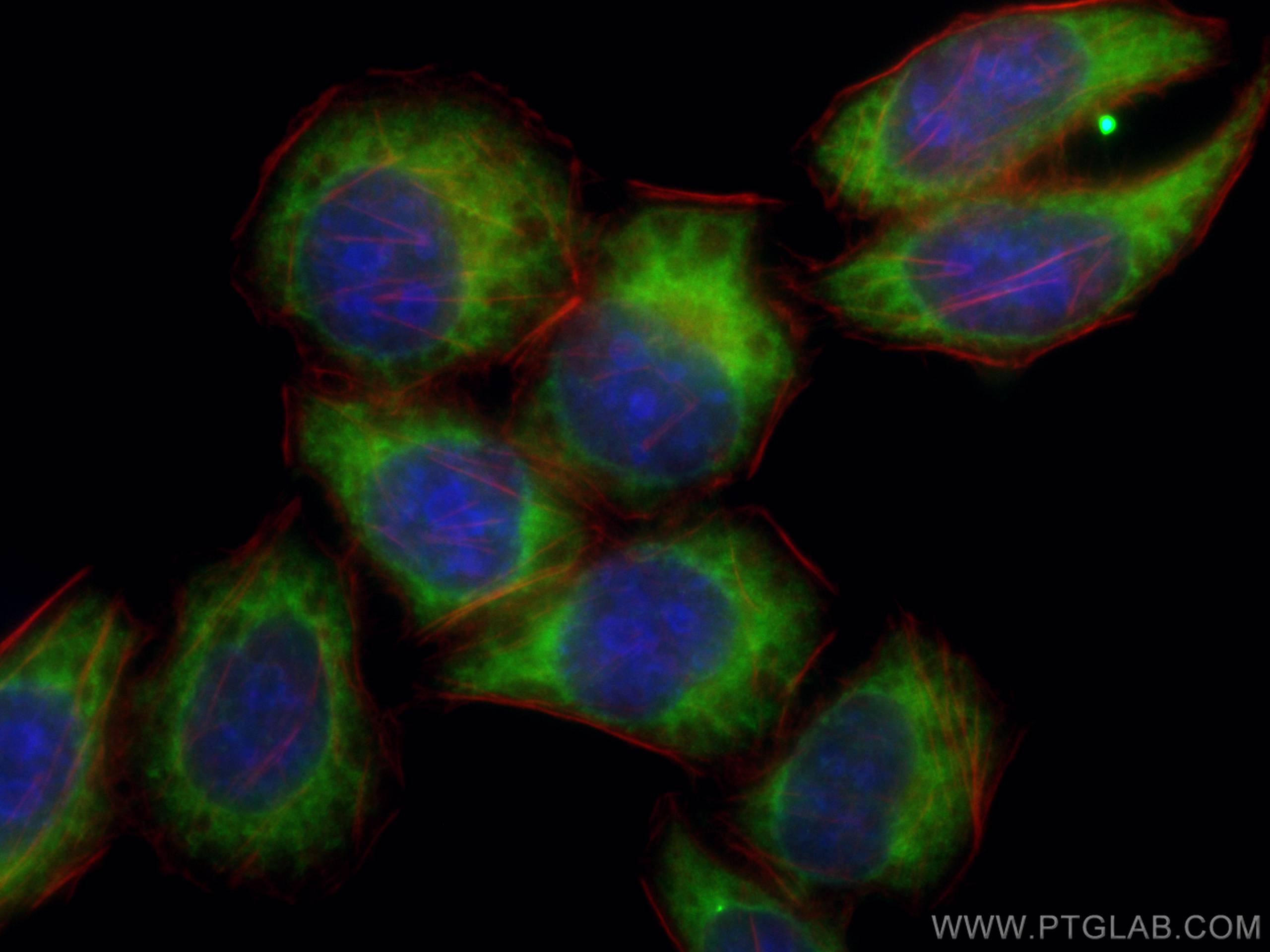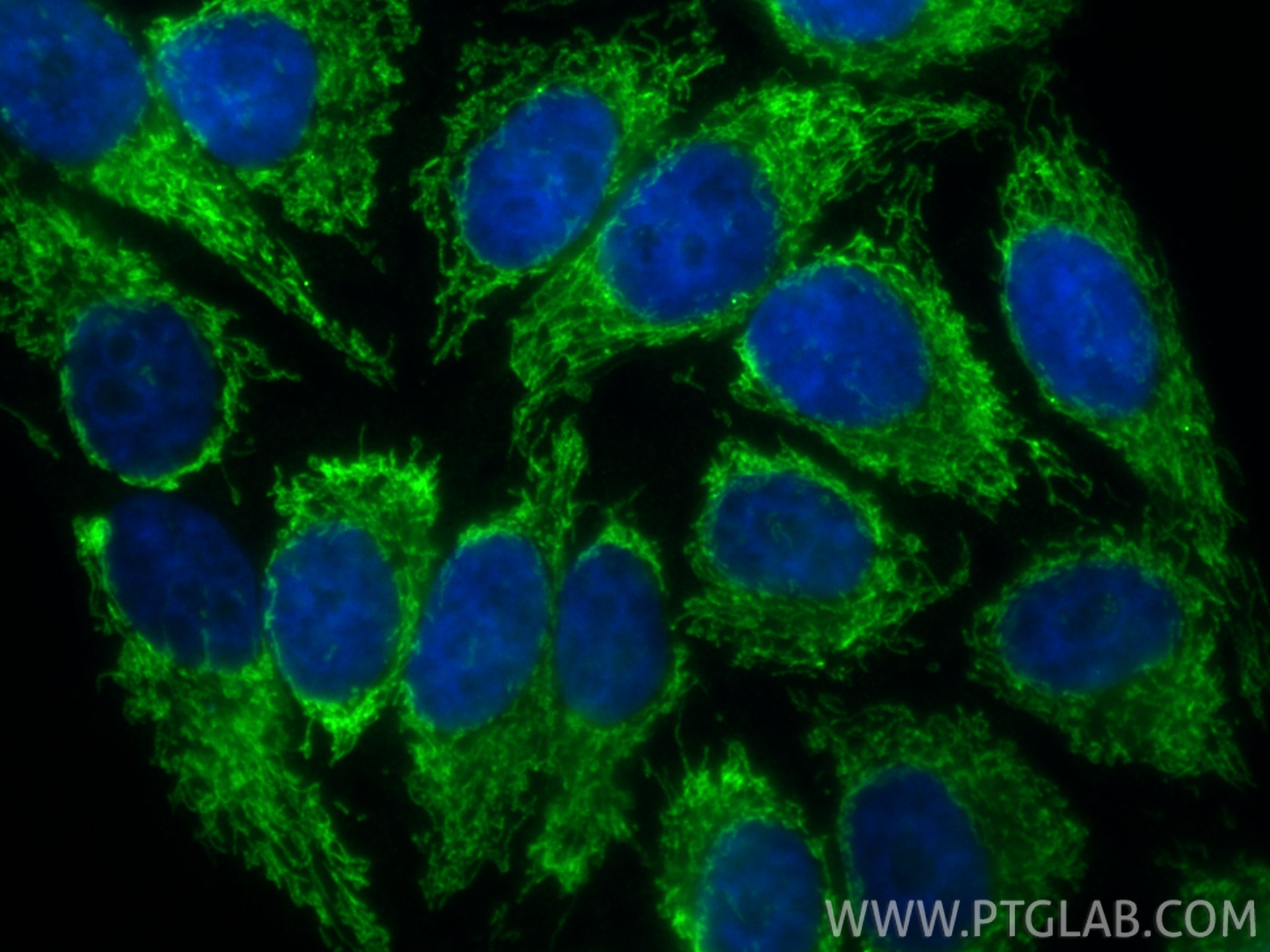Tested Applications
| Positive IF/ICC detected in | HepG2 cells, L02 cells |
Recommended dilution
| Application | Dilution |
|---|---|
| Immunofluorescence (IF)/ICC | IF/ICC : 1:50-1:500 |
| It is recommended that this reagent should be titrated in each testing system to obtain optimal results. | |
| Sample-dependent, Check data in validation data gallery. | |
Product Information
CL488-66302 targets CHCHD2 in IF/ICC applications and shows reactivity with human, rat, pig samples.
| Tested Reactivity | human, rat, pig |
| Host / Isotype | Mouse / IgG1 |
| Class | Monoclonal |
| Type | Antibody |
| Immunogen |
CatNo: Ag24219 Product name: Recombinant human CHCHD2 protein Source: e coli.-derived, PET28a Tag: 6*His Domain: 1-151 aa of BC003079 Sequence: MPRGSRSRTSRMAPPASRAPQMRAAPRPAPVAQPPAAAPPSAVGSSAAAPRQPGLMAQMATTAAGVAVGSAVGHTLGHAITGGFSGGSNAEPARPDITYQEPQGTQPAQQQQPCLYEIKQFLECAQNQGDIKLCEGFNEVLKQCRLANGLA Predict reactive species |
| Full Name | coiled-coil-helix-coiled-coil-helix domain containing 2 |
| Calculated Molecular Weight | 151 aa, 16 kDa |
| Observed Molecular Weight | 17 kDa |
| GenBank Accession Number | BC003079 |
| Gene Symbol | CHCHD2 |
| Gene ID (NCBI) | 51142 |
| RRID | AB_2883305 |
| Conjugate | CoraLite® Plus 488 Fluorescent Dye |
| Excitation/Emission Maxima Wavelengths | 493 nm / 522 nm |
| Form | Liquid |
| Purification Method | Protein G purification |
| UNIPROT ID | Q9Y6H1 |
| Storage Buffer | PBS with 50% glycerol, 0.05% Proclin300, 0.5% BSA, pH 7.3. |
| Storage Conditions | Store at -20°C. Avoid exposure to light. Stable for one year after shipment. Aliquoting is unnecessary for -20oC storage. |
Background Information
CHCHD2 is a widely expressed 17 kDa mitochondrion-localized protein. CHCHD2 contains a C-terminal CHCH (coiled-coil helix coiled-coil helix) domain. The function of the CHCH domain is not well understood, and the few characterized proteins that harbor this domain have diverse functions. Mutations in CHCHD2 gene have been reported in autosomal dominant Parkinson's disease (ADPD).
Protocols
| Product Specific Protocols | |
|---|---|
| IF protocol for CL Plus 488 CHCHD2 antibody CL488-66302 | Download protocol |
| Standard Protocols | |
|---|---|
| Click here to view our Standard Protocols |






